When I was less than 10 years old, I attended boarding school at Nambuma Primary (elementary) and decided I wanted to become a nurse because the nurses had nice houses with electricity and good locations. I was raised by her father and stepmother since my parents separated long before I remember. I experienced many hardships because my stepmother did not care for me. On school holidays, I had to walk on foot all the way from my primary boarding school to my family’s house in Area 25 because they didn’t send money for transportation (about 30km which is more than 18 miles).
AHA Program Manager poses with Christina and her daughters, Chisomo and Psyela.
Despite the hardships, I always took position #1 in my class. When I finished primary school, I was admitted to three different National Girls Secondary Schools (high schools), so I chose Ludzi Girls Secondary School, which is still a highly commendable school today. However, I continued to have problems with lack of care from my family – I lacked basic things like soap and sugar, and there was no one I could ask for help. When I was in Form 2 (sophomore year), I had to walk all the way from Ludzi to Lilongwe on foot (18km which is about 11 miles) because my father had sent the money for transportation to my stepmom, who then sent it to her own daughter instead of to me.
At some point, I came down with tonsillitis and couldn’t eat for a month. I was finally transferred from my school to Kamuzu Central Hospital (KCH) in Lilongwe for an operation, but could not have it because my stepmom refused to sign the consent form.
In 1988, my father told me to go and see my biological mother. Not knowing the money he gave me for transportation wasn’t enough to get me all the way to my mother, I started off on a train from Lilongwe to Mtakataka station. My mother stayed at Kaphiri, which was another 100km, or 60 miles.
Since it was nighttime when I arrived at Mtakataka station, I left my suitcase with the guards and climbed into a mango tree to sleep.
I slept well without thinking of falling down or meeting a snake. The next morning, I didn’t wake up until around 8:00am and after collecting my suitcase, continued the journey by walking three km to to Mua. I didn’t have enough money for the remainder of the trip but a pickup truck allowed me to ride in the bed of the truck when he was I was only a child without money.
Throughout secondary school (high school), my best subject was math, and every week there was a test where I placed among the top 10 in my class. I still wanted to become a nurse but had no chance to go to University because of lack of money and my family situation. So I entered a technical program at Nkhoma Nursing School from 1995 to 1998. That’s where I met William, who would later become my husband.
After completing Nkhoma’s schooling program, I began working at Nkhoma Hospital because I was their best student and they didn’t want to lose me. At some point, I decided to resign, but they refused my resignation, sending a letter to the Hospital Director in Holland asking that he should increase my salary in order to keep me. I refused their offer because I could not accept an increase in salary without the same being done for my colleagues, to maintain fairness.
William and I got married in 1999. We had arranged a church wedding but my stepmom refused to be part of it so we went to the District Commissioner’s office to complete the marriage. (The parents of the bride would normally be in the forefront of a church wedding in Malawian culture.)
In 2000, my family and I were lucky to survive a near-fatal road traffic accident on the way to the hospital to give birth to our first child. I was in labor in the bed of a pickup truck when the vehicle overturned. The vehicle was damaged beyond repair, while one passenger died and others suffered fractures. Yet my husband, my sister, and myself all survived with no injuries. We continued on our way to the hospital where I gave birth to a baby girl.
In 2000 after leaving the job at Nkhoma, I went to work for the government because the government would pay for further schooling and career upgrades. I started at Area 25 Health Center and within less than a year went to Kamuzu College of Nursing to upgrade. Our second child, another girl, was born in 2003. In 2004, I finished the nursing program and was given a matronship at Nathenje Health Center where I oversaw five facilities. Through this position I came to know more about nursing, working with different kinds of people, and working with NGOs, as well as traveling throughout Malawi for various programs.
I continued until 2009 when I was transferred to the Lilongwe District Health Office. I worked there as a coordinator of ETAT (Emergency Triage Assessment & Treatment) and Care for the Carers, which was a program addressing HIV/AIDS in the workplace.
I traveled to Ethiopia and Kenya in 2011 for two weeks and spent six months in Norway for a maternal and child health program. I always loved working with babies and children, and I became a trainer of trainers in this area upon my return to Malawi.
I was involved in more than 10 different training programs with NGOs on various topics. Many colleagues were jealous of my positions, causing stigma in the workplace which drove me quit in 2015 when I could no longer manage to go to work.
In 2021, my husband, William, passed away, leaving me with our two daughters who are currently pursuing higher education. The elder, Chisomo, is attending medical school while the younger, Psyela, is studying electrical engineering (Psyela has worked with AHA as a interviewer).
In 2022, I experienced some health problems of my own and was supported by AHA to go for a successful operation at KCH. I am now doing fine and am happy to continue working with AHA on various programs as a nurse, translator, and coordinator.
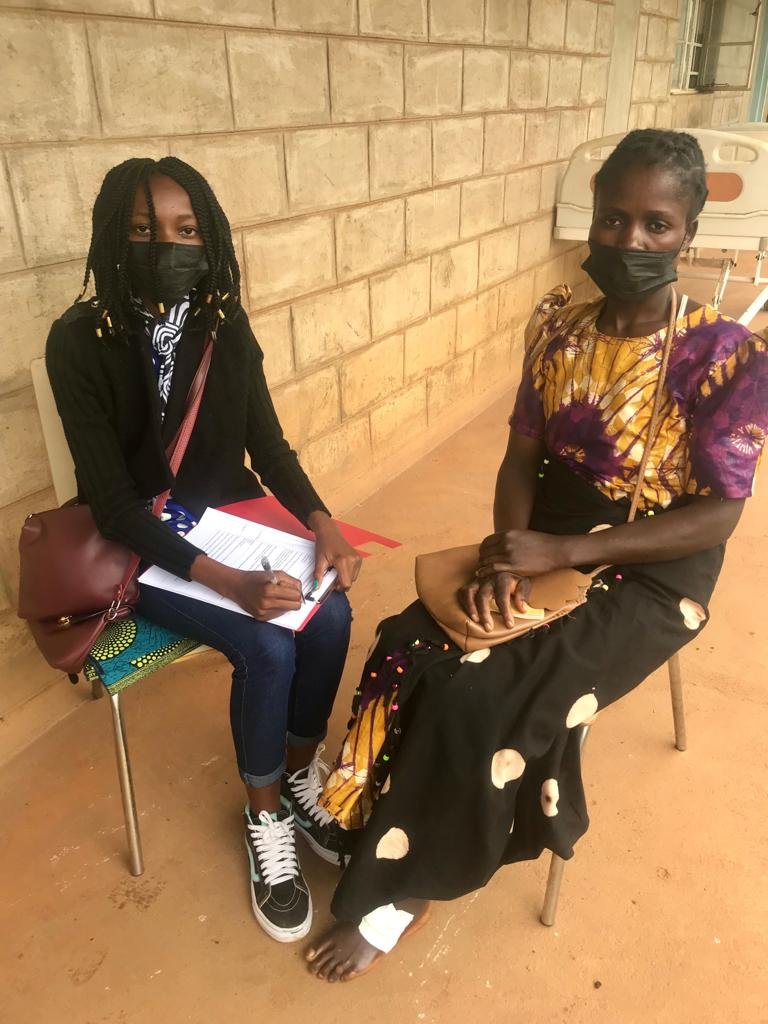
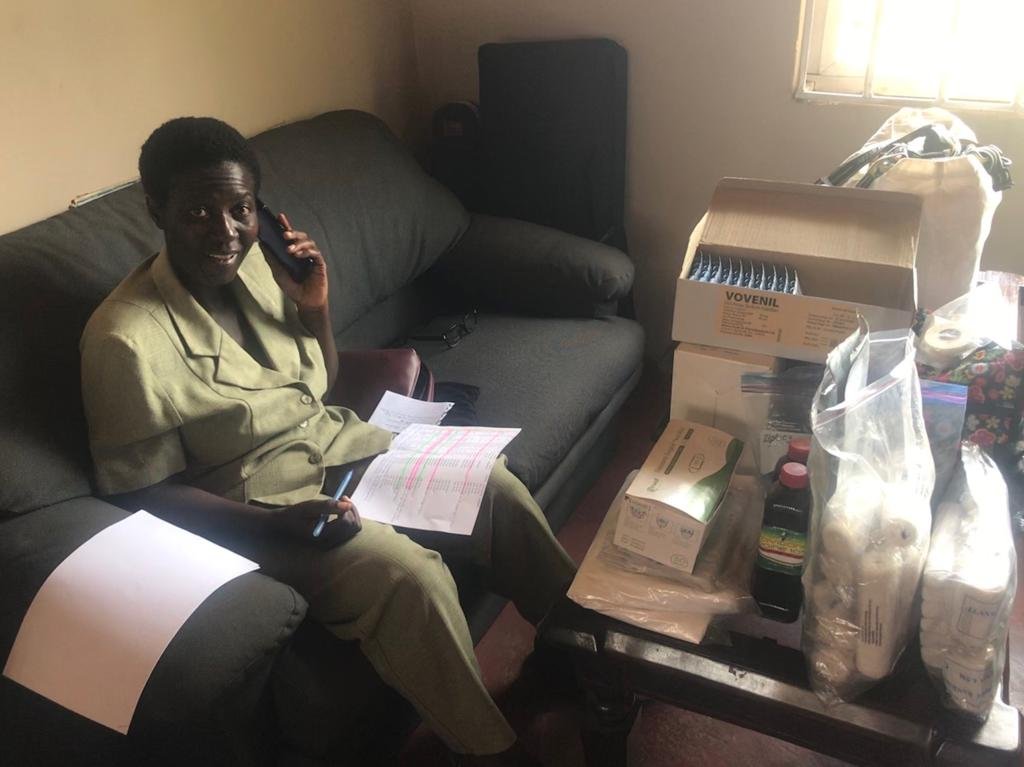
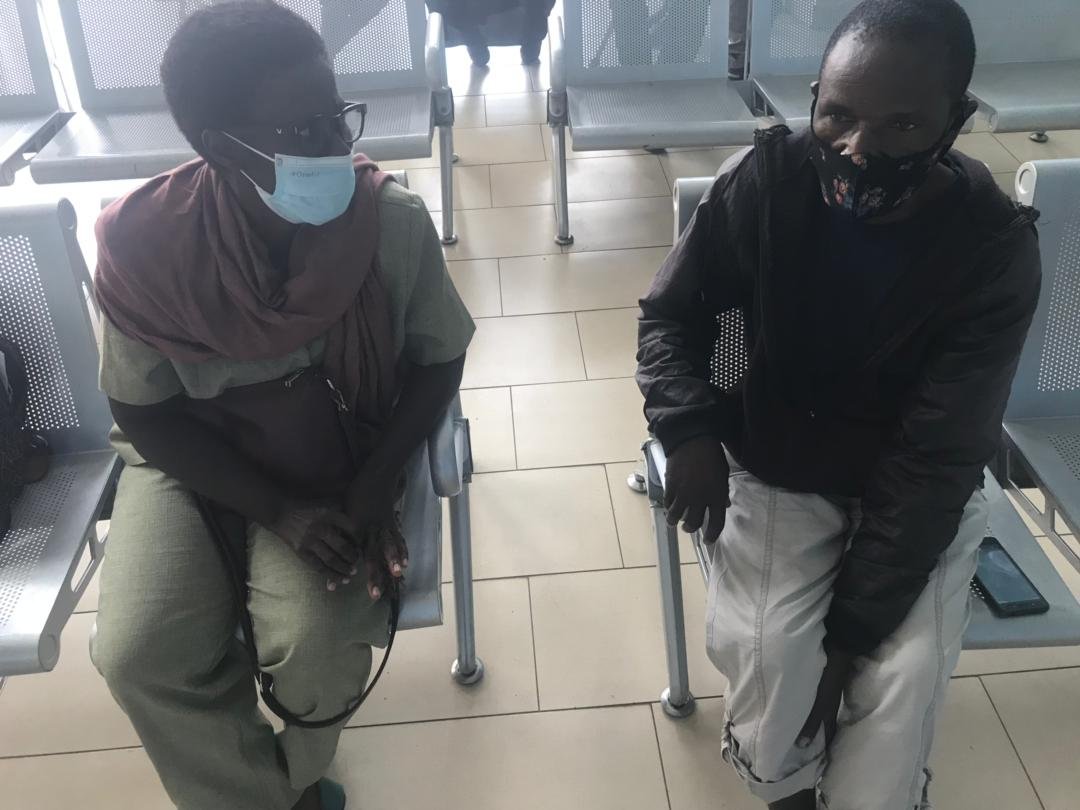
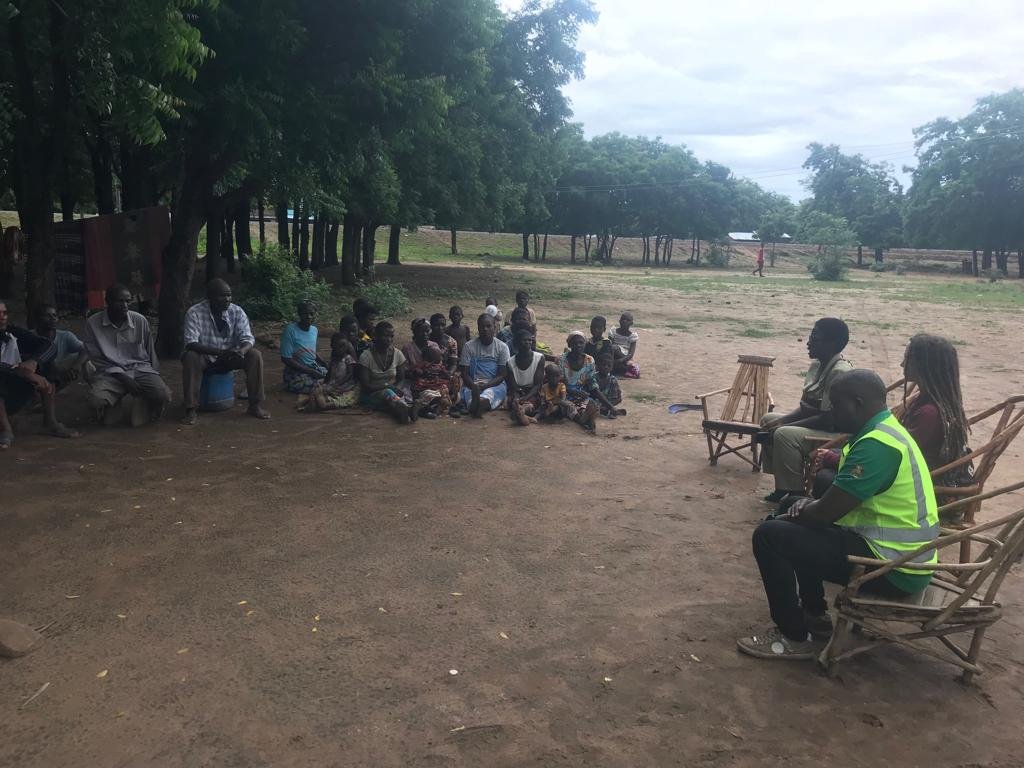
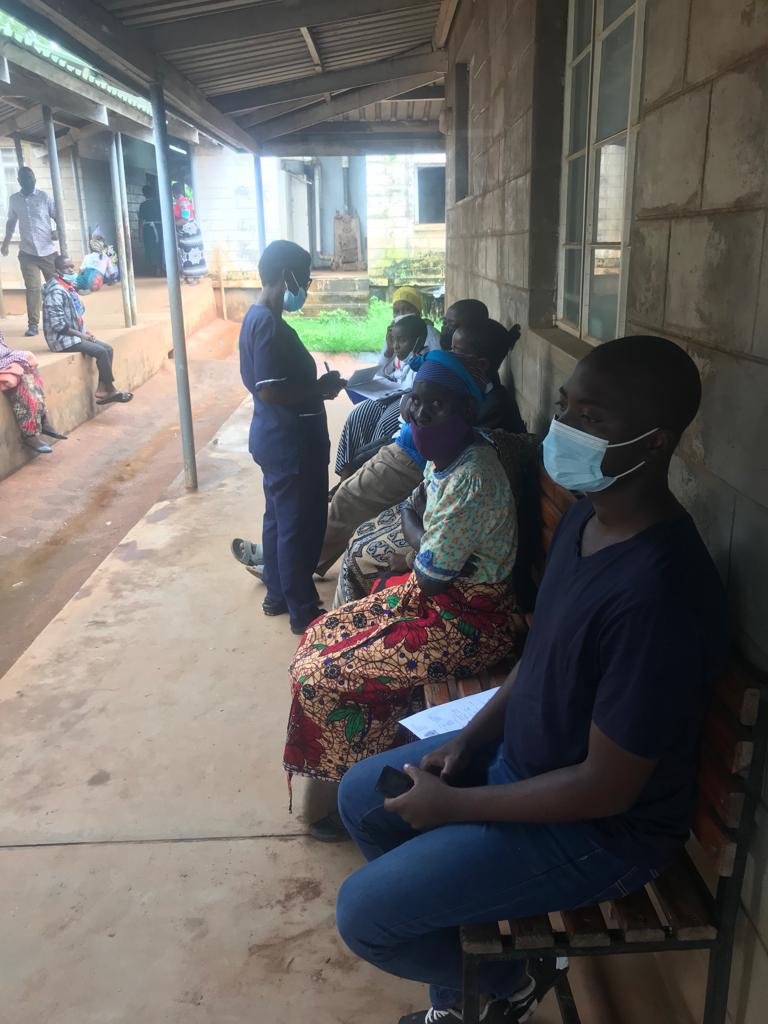
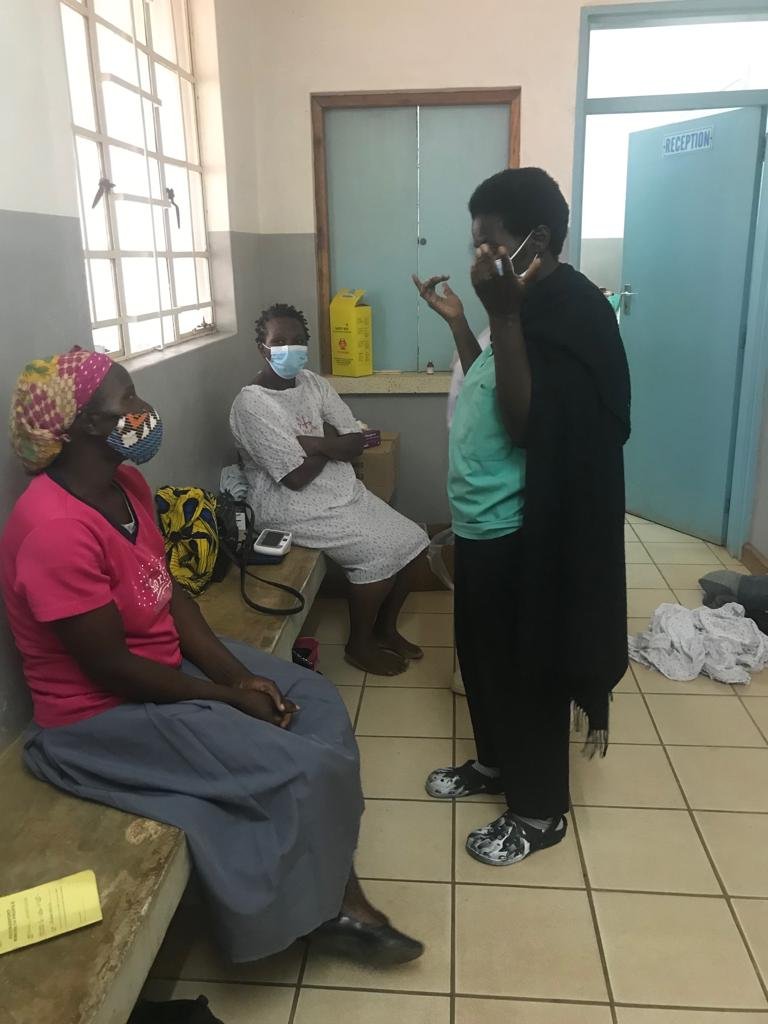
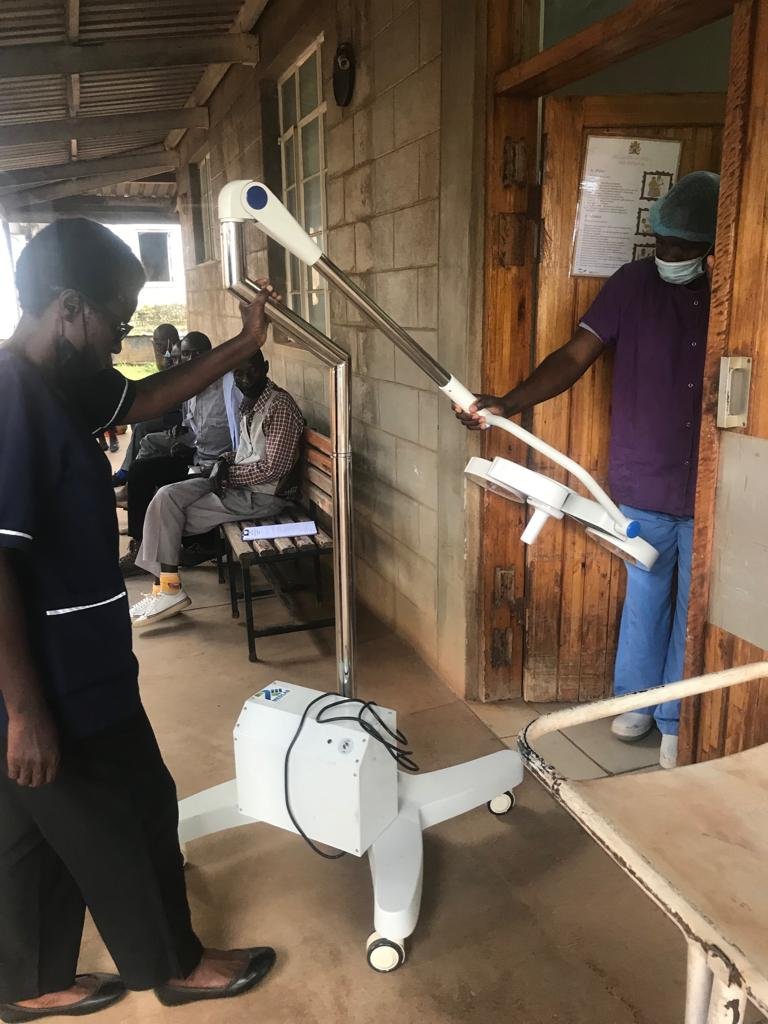
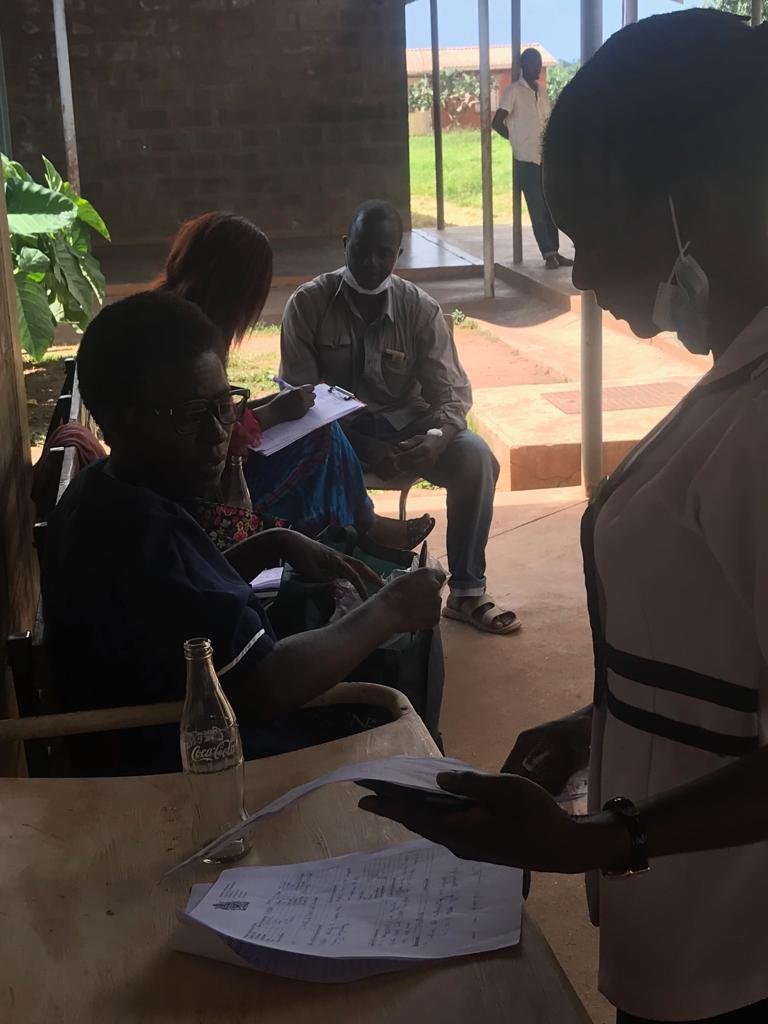
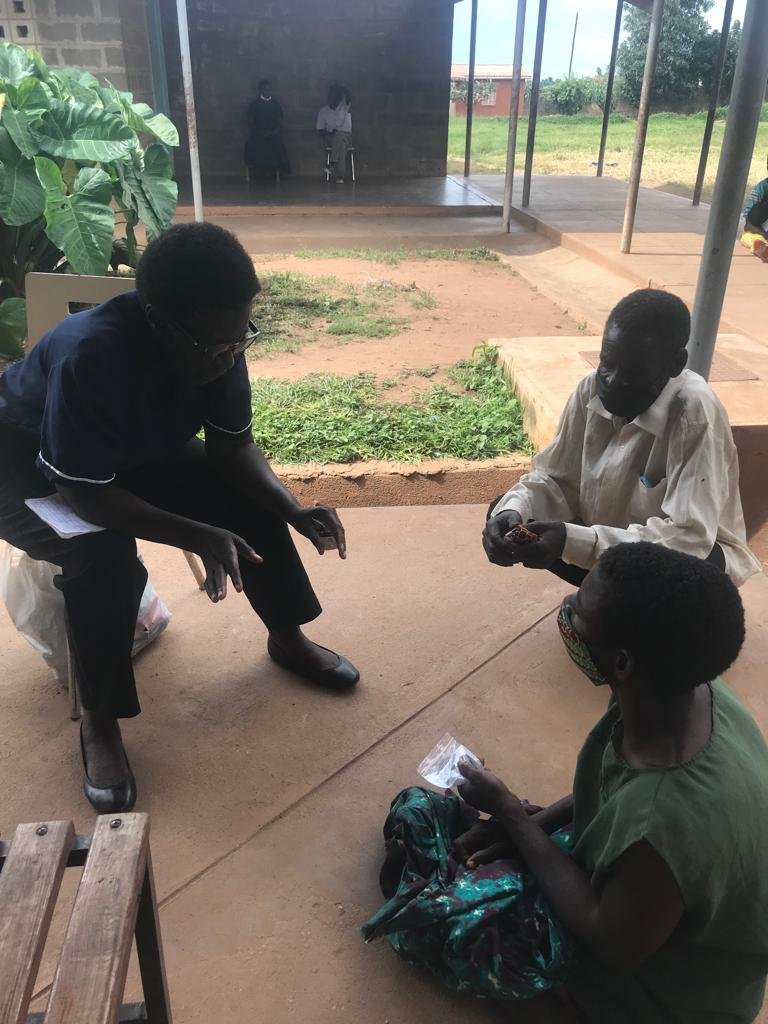
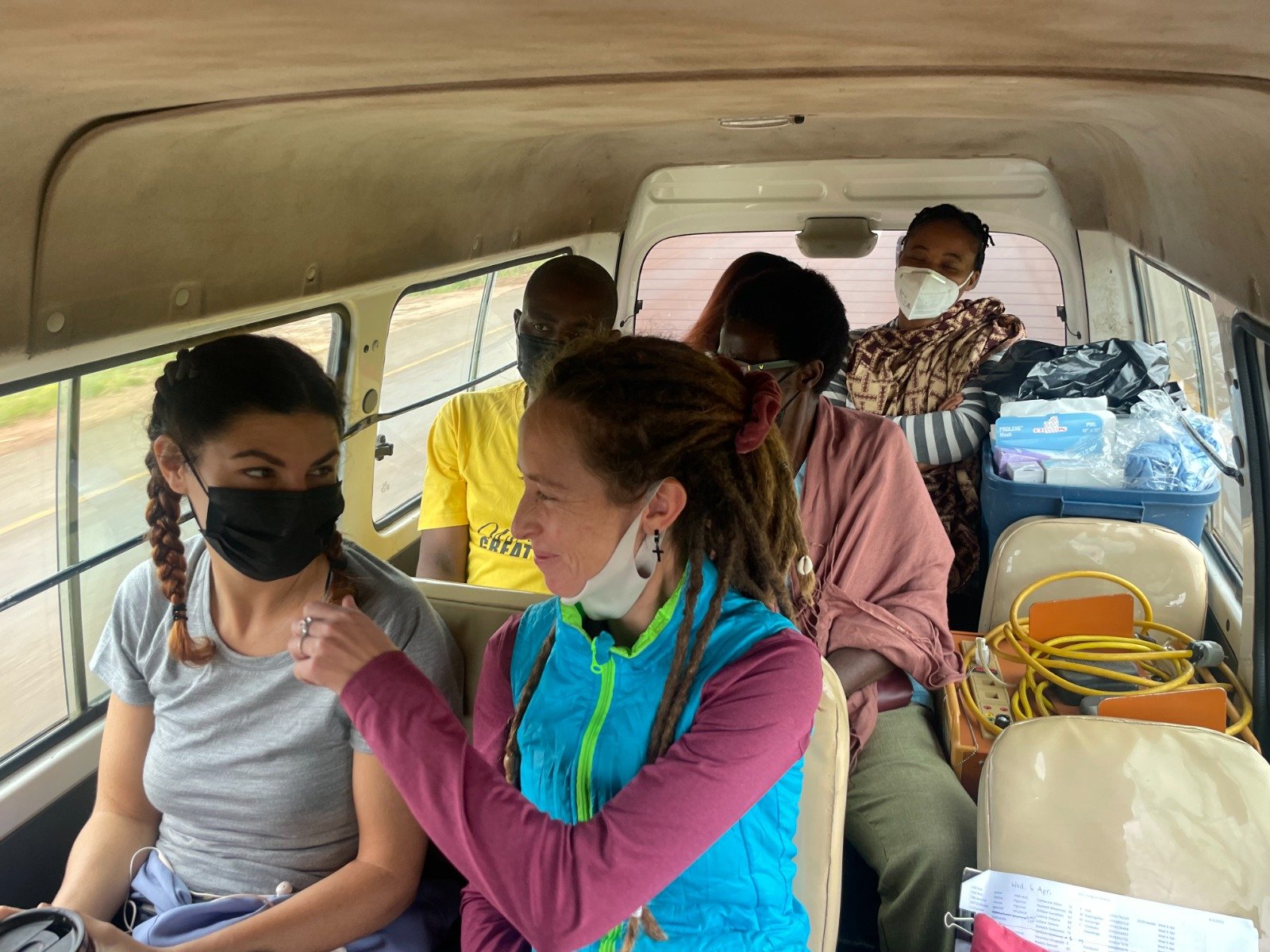
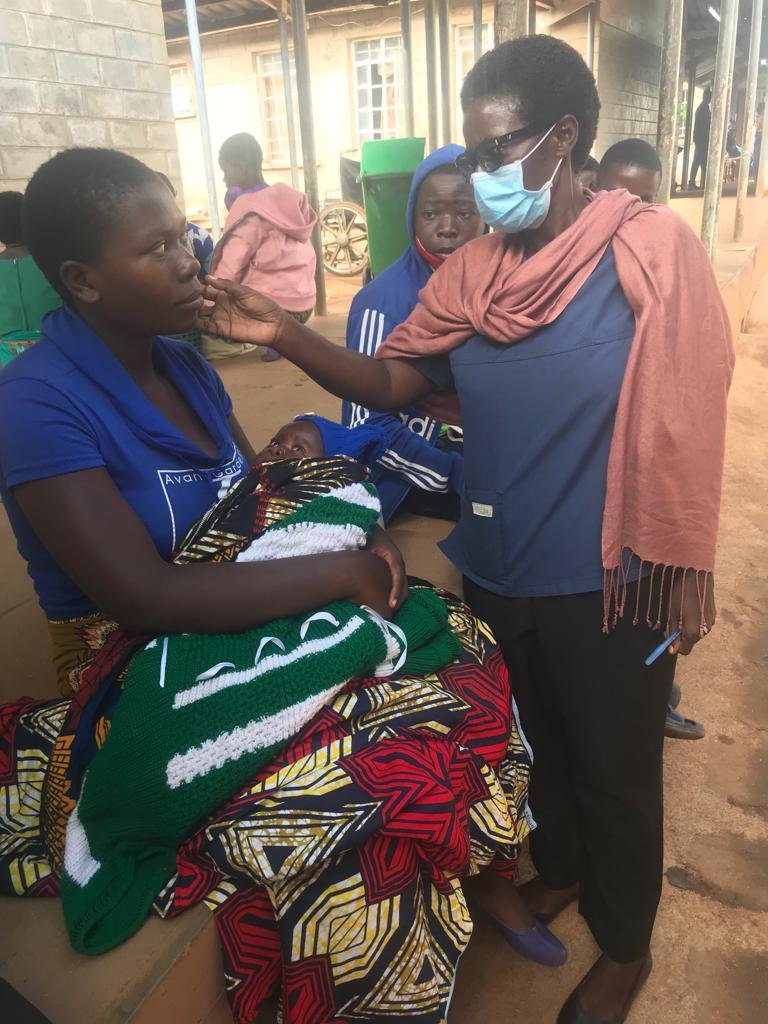
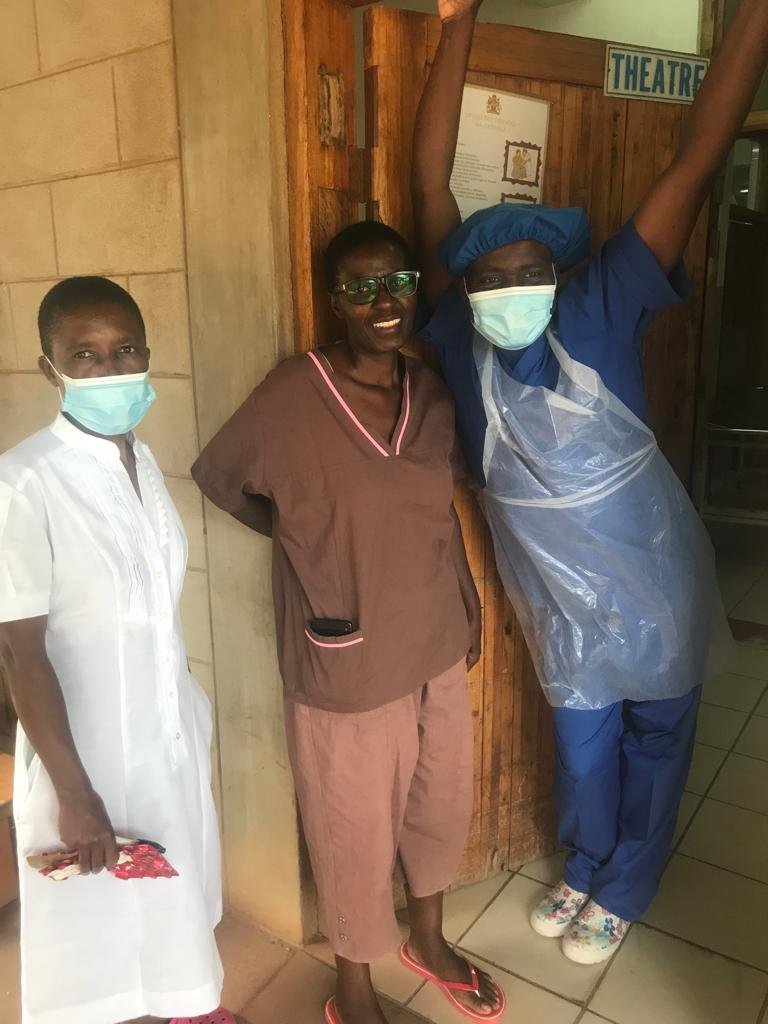
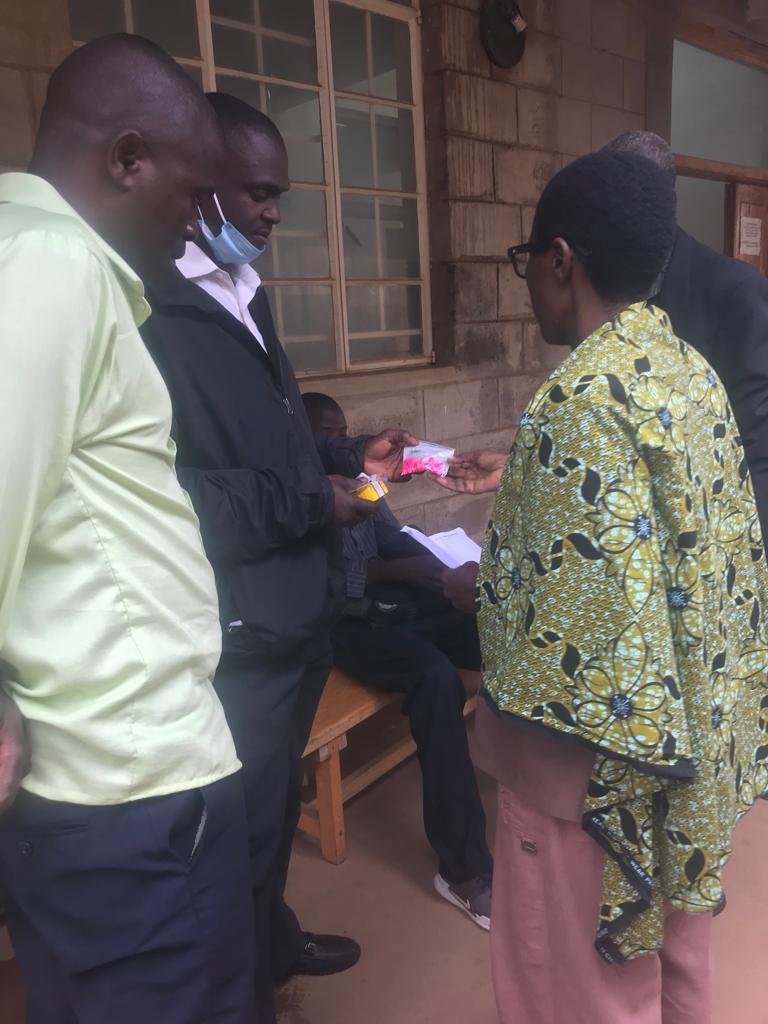
Today, AHA is so thankful for Christina’s ongoing partnership. Christina is skilled at overseeing program activities as well as connecting with patients for greater levels of care supported by AHA. Her lifelong insight into Malawi’s healthcare system is invaluable to our work, our organization, and most importantly, our patients.

